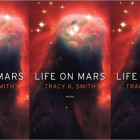Unburied Memories: A Tiny Interview with Carlos Villacorta Gonzáles
My newest literary kick is immersing myself in literature from Latin America that hasn’t been translated to English yet. Reading outside of the American canon, you learn new tricks and new ways of cutting familiar narratives—but if you’re lucky you learn a new kind of reading altogether. Which is what’s fresh and exciting about Carlos Villacorta Gonzáles’s new novel, Alicia, Esto Es El Capitalismo (Intermezzo Tropical Editores). The novel is a new kind of narrative about Generation X’ers, love, and coming of age during the Fuijimori regime in Peru. Today I talk with Carlos Villacorta Gonzáles about writing his new novel, and the stories that have been buried in the wake of the Fujimori regime.
DP: First of all, I just wanted to say I love this book. I hope it gets translated widely in the near future. I think it deserves to get translated. I read it in one furious sitting (if you can sit furiously) and I have a feeling I’m going to go back and read it a second and third time. It’s incredibly well crafted. Without giving too much of the novel away, could you talk a little about how the roots of this novel?
CVG: Thanks for your kind words. The roots… I tried to depict a particular moment in Peru: the nineties during Fujimori’s dictatorship. Especially 1996 and 1997 when Fujimori consolidated his authoritarian government and pushed his neoliberal economic agenda. There were a lot of ways he controlled the media and bribed politicians—and not only politicians. He reached into everyone’s lives. Even actors, athletes, broadcasters, our own lives, etc.
There is very little written about those years—about the impact of Fujimori’s economic policy and his authoritarian dictatorship over Peruvian families. This novel focuses on a couple and their survival in a ruthless Peru. Since then, the time period of the novel, Peru has become a country with more malls and apartments and restaurants—all of the things my generation lacked growing up: material things. But even today things have not changed that much under the surface. I wanted to write about that.
DP: I love the first line in the book, which loosely translates in English to, “I’m not going to tell you a story. I’m going to tell you about my hunger.” And then you go into this idea about life in Peru being like a puzzle you have to put together without an image to build it from. I love those first pages about the chaos of trying to piece together a narrative.
This is your first novel—you have three collections of poetry. Why a novel this time? Could you talk about piecing this narrative together?
CVG: After my last poetry book Ciudad Satélite (Satellite cities, 2007), I realised that my next project, this one, had to be something different. I wanted to tell a story, a narrative. I haven’t given up on poetry (I wrote another poetry book and am hoping to publish it next year), but I knew prose was the medium through which to be writing a story about the Peru of the nineties and my generation.
Writing it was interesting. I had to read a lot of history to contextualize the historical, political and urban context. I looked at old photos, checked old newspapers, and read books about Peruvian politics and economics too. I also used my own memories about that time. I decided to write the story from the perspective of the male protagonist (Tigrillo/little tiger) and when I finished it in 2011, I realized there was something missing: another point of view.
Then I wrote the second part of the book with the same time-period but then from the perspective of Alicia, Tigrillo’s love. I really think that’s the poetry of the novel. The first line of the book you quoted was one of the last things I wrote, when I realized the whole point of the book was not about telling a story but the hunger and survival of these two people.
I suppose I always imagined writing a novel like a puzzle you have to solve: maybe you have all the pieces, maybe you don’t, but definitely something will come out of it. That is why you won’t understand Tigrillo’s story without Alicia’s travelling through Peru and vice versa. This tells a lot about my conceptions about my country too: everything is there, you just have to put all together. But you need to listen to the version you haven’t heard yet.
DP: Do you feel certain stories have been buried or stymied?
CVG: Definitely. For example, the official story is Fujimori saved us from the terror. Many Peruvians believe that, and that is why so many Peruvians want to vote for his daughter, Keiko Fujimori, in 2016. But we all know that Fujimori’s government was the terror itself. I did not become a writer to tell the official story, but I do feel compelled to tell the stories that have never been told about this era, those stories that were hidden on purpose.
Since 2003, most Peruvians writers have focused on the Internal Conflict between 1980 and 2000. They tried to do that to understand the situation people lived in during those decades. I think it is still a challenge for young writers to depict the war and their consequences. I applaud this effort since it is necessary, but at the same time I think we need to look for other ways to tell stories about this topic or others topics surrounding this era. The realism-based Peruvian approach is not enough to understand the complexity of Peruvian society or even human nature. I agree with Peruvian writer Carlos Yushimito about the idea of “blowing up realism”, or at least taking realism to the extreme, like Franz Kafka, in telling these stories.
DP: That’s interesting you bring up Kafka. I’m ashamed to say I’ve only read that one short story of Yushimito’s—the one in Granta. But I’ve heard of this idea of blowing up realism, almost in this surreal way that war is surreal or dictatorships are surreal. Do you find it hard to write about Fujimori?
CVG: I don’t think war or any dictatorships are surreal or should be written to produce some effect of living in a dream with open eyes. I think “blowing up realism” is more trying to expand the possibilities of fiction to include different notions of time and space in the narrative.
Writing about Fujimori’s era is difficult. I tried to depict the psyche of the time, the contrast between an orphan society looking for an authoritarian father to put some order in the country, even as that father killed his citizens as well. At least 2,000 women were part of his campaign of forced sterilisations. I am pretty sure many people believed that was the right way to modernize Peru.
It is not surreal to say that the main characters of my novel had to live through things like this and had to make their own choices in spite of endangering their own lives. Fiction is a thin line between reality and personal experience. The challenge of a writer is to show the three of them and connect them without you noticing them.
DP: What’s next for you? Can we expect more novels?
CVG: It will take some time before my next novel but definitely a collection of short stories is coming. Knowing how difficult it is to write about Peru, my next book will be about stories that happen somewhere else: Greece, Ukraine, Germany, France and the United Sates. But it is still very early to talk about this. I’m also working on a new book of poetry.
DP: Can’t wait to see what’s next. Thank you!
CVG: Thanks!



